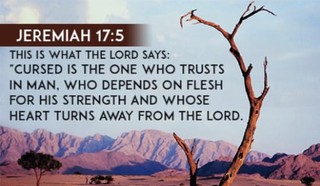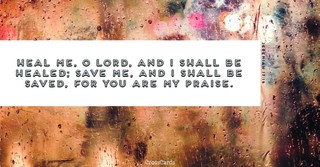
- Recent Translations
- All Translations
Jeremiah 17:11
Share
Settings
Jeremiah 17:11 Meaning and Commentary
As the partridge sitteth on eggs, and hatcheth them not
Here seems to be another sin pointed at, as the cause of the ruin of the Jews; as idolatry and trust in the creature before mentioned; so riches unjustly got, and these boasted of and trusted in; the folly of which is illustrated by the simile of a bird sitting on eggs, and not hatching them; being either addled, or broke by the male through lust, or by the foot of man or beast, being laid on the ground; Or by a bird which "gathers" F19, as some; or "hatches", as others, eggs it has not laid; which being hatched, run away from it, and so not enjoyed by it. The Targum is,
``as the partridge, or "koraah", which gathers eggs that are not its own, and nourishes young ones which will not follow it, so''whether the partridge is meant by "kore", the word here used, is uncertain. Bochart F20 thinks the "woodcock", or "snite" or "snipe", is intended. Jarchi interprets it, by the "cuckoo", which is not likely; since that does not take away another's eggs, and sit on them; but lays its own eggs in another's nest, and leaves them to be hatched by it; but it must be understood rather of such an one that gets the eggs of another, and hatches them, but cannot keep the young when hatched; and this is said of the partridge, that when its own eggs are broke, it will get others, and sit upon them, and hatch them; but being hatched, knowing her not to be their dam, and hearing the voice of that which is, run from her to it F21:
so he that getteth riches, and not by right;
but by fraud, rapine, and oppression; such are they that will be rich, that are resolved upon it at any rate, right or wrong; and such persons may succeed, and become rich by illicit methods; but then, as such riches may be truly called "mammon of unrighteousness"; so they will not profit in a time to come, in a day of wrath; neither are they of long continuance now: for such a man
shall leave them in the midst of his days;
which, according to the common term of life, and course of nature, he might hope to arrive to; he shall die, and not enjoy what he has got together; while he is promising himself much and long happiness, his soul is required of him; and whose his substance shall be, he knows not; the riches he has heaped up together, he knows not who shall gather; nor to whom he leaves them, whether a wise man or a fool: however, this is certain as to himself,
and at his end shall be a fool;
he shall appear to be one for getting riches in an unlawful way; for trusting in uncertain riches; for promising himself a great deal of pleasure and felicity in them for a long time, which he could not secure; and for neglecting the true riches of grace and glory; see ( Luke 12:19-21 ) . The Targum is,
``at his end he is called a wicked man;''because of the unjust manner in which he has got his riches, and which appears by his end; every wicked man is a fool. The word here used is "Nabal"; and as is his name, so is he.
F19 (rgd) "collegit", Vatablus, Pagninus, Junius & Tremellius, Piscator, Cocceius; "collegit", Montanus, Schmidt; so R. Sol. Urbin. Ohel Moed, fol. 82. 1.
F20 Hierozoicon, par. 2. l. 1. c. 12. col. 81.
F21 Vid. Frantz. Hist. Animal. Sacr. par. 2. c. 11. p. 414.

